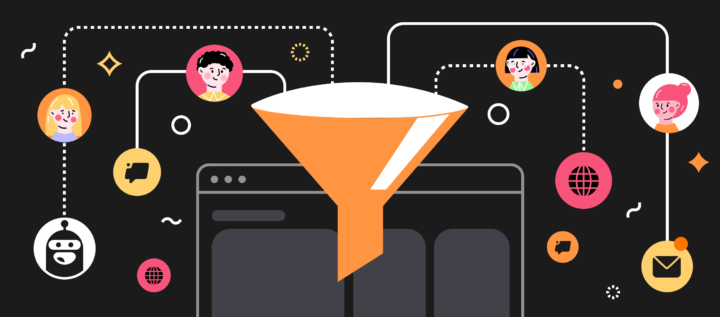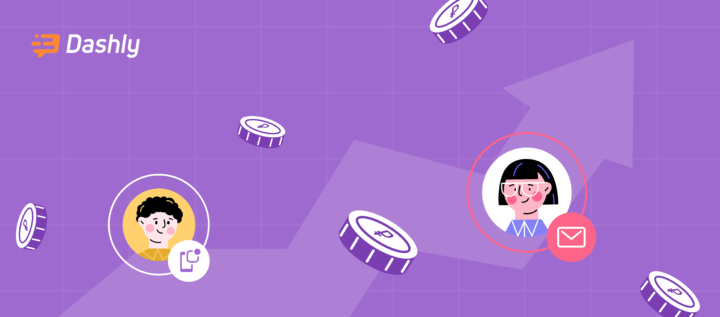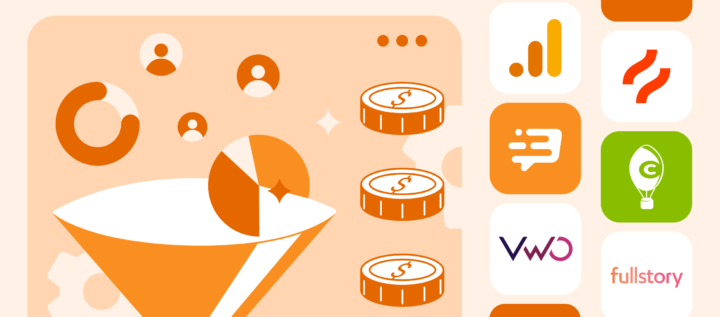Master Your CRM Funnel: Expert Tips on How to Close Deals Faster
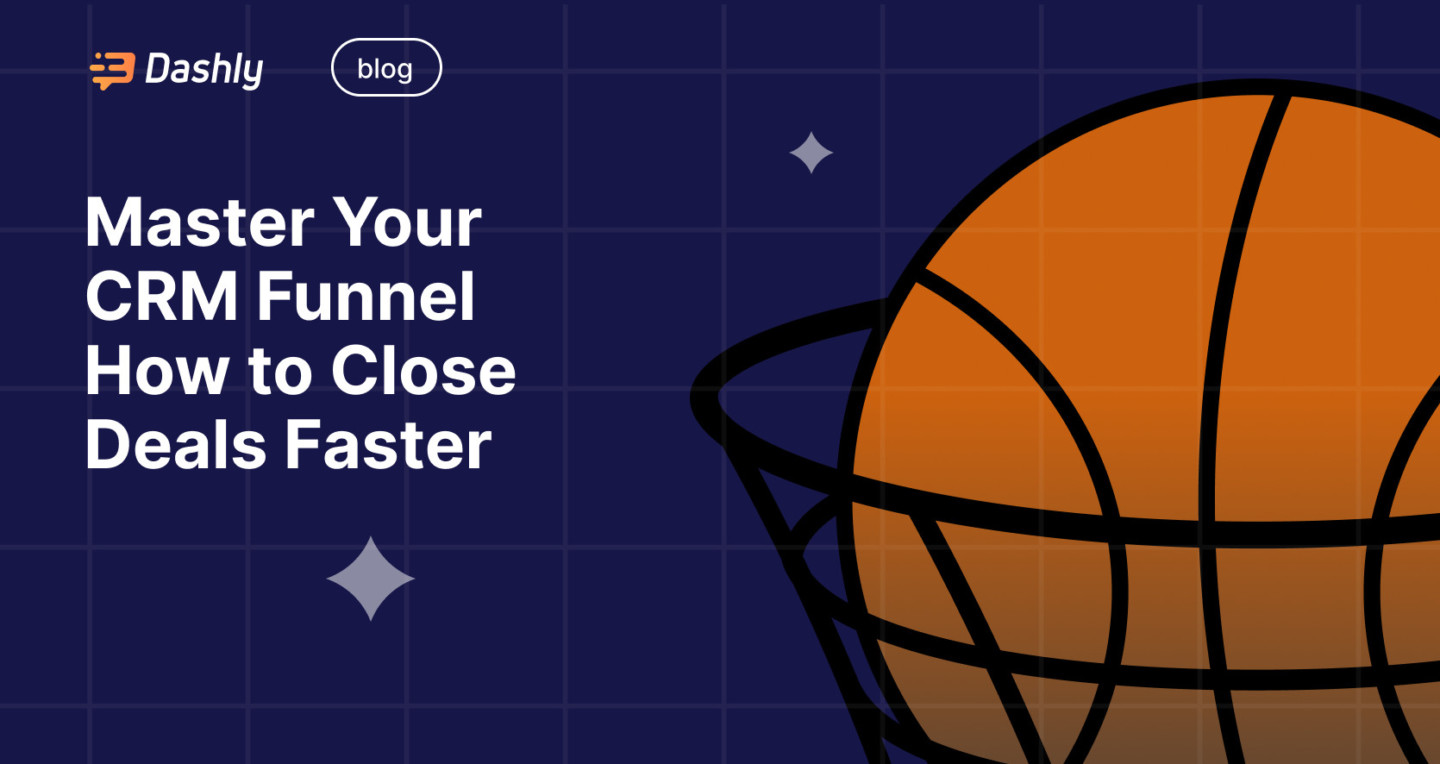
Struggling to turn leads into paying customers? A poorly managed CRM funnel could be the culprit. Missed opportunities, low conversion rates, and wasted ad budgets are just the beginning. Each leak in your funnel means lost revenue and frustrated sales teams.
But don’t worry — this article has your back. We’ll break down what a CRM funnel is, why it’s critical for your business, and how to optimize each stage for better results.
Ready to fix those leaks and watch your sales soar? Let’s dive in!
What is CRM funnel?
A CRM funnel (or CRM sales funnel) is your business’s journey map for turning leads into customers. It’s a step-by-step process. From the first hello to the final handshake.
Think of it as a well-organized path. It guides your leads through every stage—awareness, consideration, decision.
The goal? Conversions. Revenue. Growth.
Imagine you’re a startup. You’re ambitious. You want to double your sales pipeline. But here’s the issue — your funnel has cracks. Leads drop off. Conversations stall.
Here’s what happens next.
You track incoming leads with a CRM tool. Qualify them quickly. Nurture them with tailored emails and messages. Analyze the stages where they churn. Then, you tweak. And tweak again. Soon, every part of the CRM funnel works like clockwork.
One SaaS client of ours used this exact strategy. Result? 2x the sales pipeline in just six months. No magic. Just a strong funnel.
Now, imagine a CRM sales funnel running at full power. Leads don’t fall through. Teams don’t waste time. Growth feels inevitable.
Why the correct CRM Funnel is vital for your business?
Let’s get real. Without a CRM funnel, you’re flying blind. Leads come in. Some disappear. Some convert. But you don’t know why — or why not. That’s where a proper CRM sales funnel saves the day.
Here’s why it’s essential:
1. It plugs the leaks
Leads drop off at every stage. It’s normal. But if your CRM funnel isn’t optimized, you’re losing more than you should.
For example, 79% of leads fail to convert without timely follow-ups. Why? People forget. Lose interest. Get distracted by TikTok. A strong CRM funnel ensures you’re there to re-engage them at the right moment.
2. It doubles your pipeline
SaaS companies with optimized CRM sales funnels see up to a 27% higher close rate. That’s not magic. That’s strategy.
Take this: A mid-sized SaaS company revamped their funnel. They used automated lead qualification, targeted email nurturing, and detailed funnel analytics. The result? A 2x increase in their sales pipeline within six months.
Now, imagine what that could mean for your business.
3. It boosts team efficiency
Sales teams waste time chasing bad leads. And it’s costly. Research shows that teams spend up to 64% of their time on low-priority leads.
A well-structured CRM funnel solves this.
It qualifies leads early and routes them to the right people. No more chasing dead ends. Picture this: Your sales reps focusing on hot leads only. Faster conversions. Happier teams. Higher ROI.
4. It turns chaos into clarity
An unstructured funnel feels like juggling blindfolded. A well-organized CRM sales funnel? It’s your business GPS. It shows where leads are dropping off. Where they’re engaging. And where to improve. For example, companies using detailed funnel tracking have reported a 45% higher ROI on their campaigns. That’s huge.
5. It guarantees predictable growth
Want consistent results? A strong CRM funnel makes it happen. Businesses with a clear funnel see steady, predictable growth. We’re talking 2x pipeline growth year over year. That’s not luck. It’s the power of knowing your funnel inside out.
The right CRM sales funnel isn’t just a tool. It’s your growth engine. It stops leaks. Boosts efficiency. And drives predictable results.
Want to double your pipeline and grow your business like a pro? Time to master your funnel.
Breaking Down the Stages of a CRM Sales Funnel

A CRM funnel takes your leads on a journey, moving them from the “Who are you?” stage to the “Take my money!” moment. Each stage is crucial to building trust and encouraging prospects to move forward toward conversion.
Here’s how to break down the CRM sales funnel stages to effectively guide leads:
1. Awareness
- What Customers Do: At this stage, your future customers are exploring options. They’re googling solutions, clicking ads, or stumbling on your website. Curiosity drives them here.
- What Sales Teams Do: No hard pitch yet. This is where marketing shines. Use blog posts, emails, and targeted ads to capture attention. A lead magnet like a free guide or quiz works wonders.
Use Dashly’s qualification quiz. With separate screens for each question, you can keep it simple and engaging. Plus, the data helps automate the next steps.
2. Consideration
- What Customers Do: They’ve found you. Now they’re evaluating. Comparing. Maybe even stalking your reviews. They’re deciding if you’re worth their application form or demo request.
- What Sales Teams Do: Guide them without overwhelming. Send personalized emails based on their behavior. Use automation to qualify leads here. For example, if they answer quiz questions about their pain points, route them to the right product page or sales rep.
Dashly’s automated lead routing keeps this process seamless. No more manual guesswork.
3. Decision
- What Customers Do. They’re almost ready to commit. But doubts creep in. Pricing? Features? Support? They need that final nudge.
- What Sales Teams Do. This is the time for action. Follow up with clear, targeted emails. Offer a live demo. Address objections with case studies or testimonials.
Automate follow-ups to never lose momentum. Dashly AI ensures no customer is left hanging.
4. Action
- What Customers Do: They sign up. Submit an application. Make the payment. It’s the big moment! But they still expect hand-holding post-sale.
- What Sales Teams Do: Celebrate! But don’t vanish. Send a welcome email. Set up onboarding. Make sure their first experience exceeds expectations.
5. Retention
- What Customers Do: They’ve bought in. Now they’re using your product. And deciding if they’ll stick around.
- What Sales Teams Do: Stay back in touch. Use surveys, check-ins, or loyalty offers. Automate these with your CRM to keep it consistent.
By mastering these CRM sales funnel stages, you’ll create a streamlined, effective process that moves leads from curiosity to loyalty. Dashly’s tools can help simplify and optimize each stage, ensuring that your funnel is efficient and effective at every level.
Double your SaaS sales funnel metrics with Dashly AI
⭐ Growth the number of qualified leads with conversational quiz
⭐ Increase meetings scheduled with AI lead nurturing campaigns
Top Challenges of CRM sales funnel management
Let’s break down the common pain points businesses face without the proper tools.
Ineffective Lead Qualification
Properly qualifying leads early in the CRM sales funnel is crucial to ensuring your team’s time and efforts are focused on valuable prospects. Without this, you risk missing out on opportunities. Here’s why:
- Lack of lead segmentation. Without proper lead qualification, all leads are treated the same, meaning your marketing and sales efforts could be off — target.
- Delayed response time. If you’re not automating processes, your sales team could take too long to respond to a lead, potentially losing them to a competitor.
- Not using insights to prioritize leads. Without automation and a good CRM software, you could miss key insights about which leads require immediate attention, leading to missed opportunities.
Manual Processes
Manual processes in your CRM funnel can cause serious slowdowns. When everything relies on human effort, you’re asking for inefficiency and errors:
- Inconsistent follow — ups. Without automation, it’s easy for your team to miss important follow — ups with prospects, resulting in lost interest and engagement.
- Time-consuming data entry. Manual data entry takes up valuable time and can lead to errors in customer records, making it harder to track and engage with leads efficiently.
- Inefficient lead tracking. Tracking leads manually through different stages of the sales process is a headache. CRM systems streamline this process, ensuring leads move through the funnel smoothly.
Poorly Timed Customer Emails
When it comes to sales, timing is everything. Email marketing is an essential part of the process, and if the timing is off, your prospects could quickly become cold leads. Here are some of the consequences:
- Missed opportunities for nurturing. If email sequences aren’t automated, prospects might miss out on key content, offers, or reminders that could have helped move them further down the funnel.
- Unnecessary delays. If follow — up emails don’t go out at the right time, the prospect might lose interest or think the business isn’t serious about engaging with them.
- Irrelevant content. Sending generic emails that don’t align with the current stage of the CRM funnel can make the prospect feel like they’re being sent irrelevant information.
The fix?
- Automated Lead Qualification. By using a CRM, you can automate the lead qualification process based on behaviors and responses. This way, sales teams can focus on the most valuable leads and engage with them promptly.
- Real — Time Lead Tracking. A good CRM software allows you to track leads in real-time, ensuring that you don’t miss important follow-ups or opportunities. This also helps in tracking the lead’s stage in the sales funnel, making sure the right action is taken at the right time.
- Automated Email Marketing Sequences. With CRM automation, email sequences are triggered based on lead behavior. This ensures that prospects are nurtured at the right time, with the right content, improving engagement and increasing conversion rates.
- Segmentation and Personalization. Segmentation of leads allows your team to send tailored messages that are more likely to resonate with prospects. Personalization based on lead behavior, interests, and stage in the funnel makes your emails and interactions more relevant, improving conversion rates.
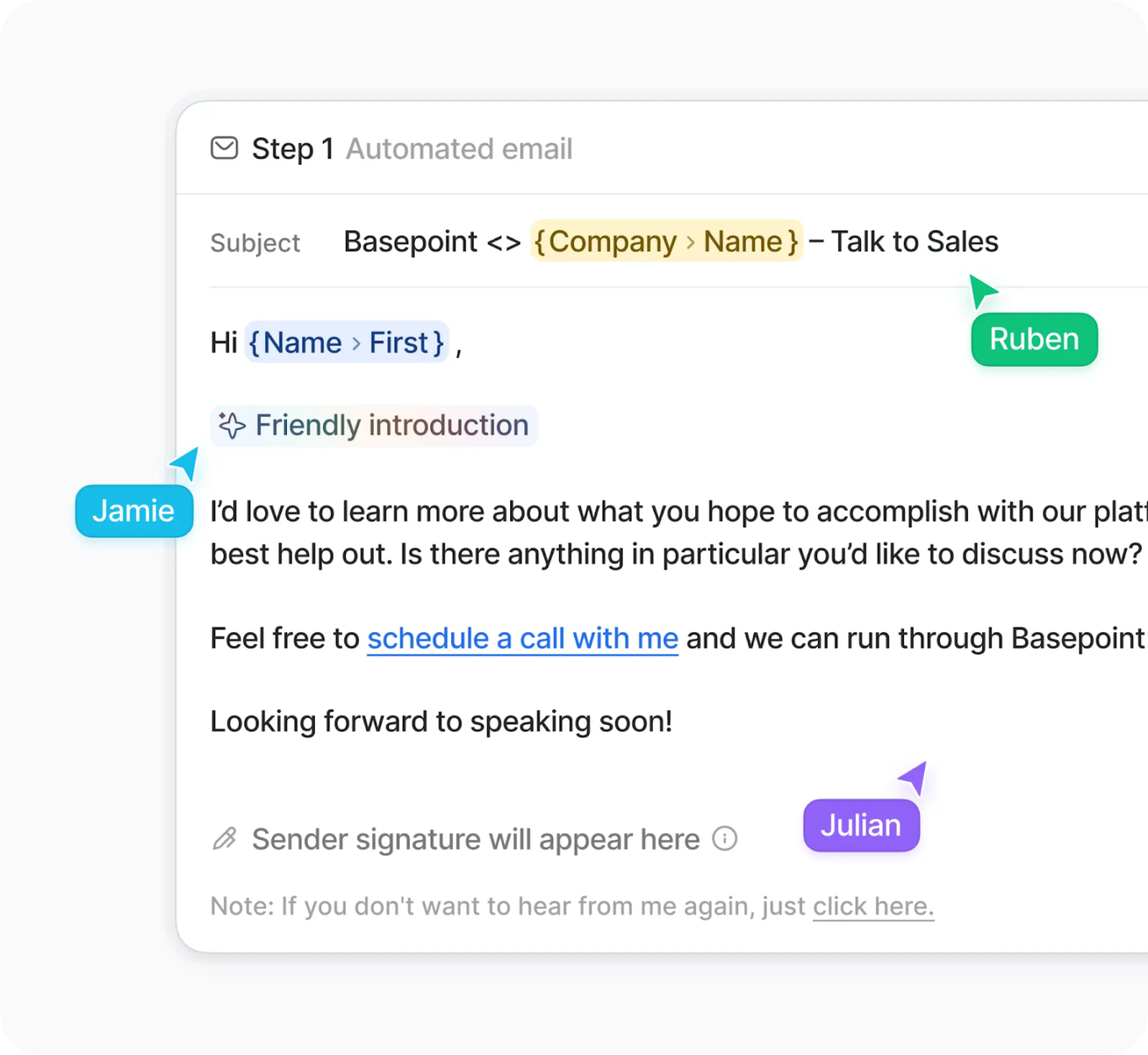
How Dashly Optimizes Every Stage of Your CRM Sales Funnel
Navigating a CRM sales funnel can be complex, with each stage requiring different strategies to move leads toward a successful conversion. Businesses need to ensure they don’t lose valuable prospects at any point in the process.
Dashly’s powerful CRM integration and automation tools streamline this process, optimizing each stage of the funnel to help businesses nurture leads, automate manual tasks, and improve conversion rates. Let’s dive into how Dashly transforms your CRM sales funnel for the better.
Streamlining CRM Integration for Maximum Efficiency
Integrating Dashly with your CRM system is a significant step toward optimizing your sales funnel. While Dashly is not a standalone CRM, it works seamlessly with existing CRM platforms, enhancing the way leads are managed. By integrating Dashly, businesses can eliminate manual processes and focus on higher — value tasks. Here’s how:
- Effortless Data Syncing. Dashly automatically syncs lead information like name, email, and responses to qualification questions directly to your CRM. This eliminates the need for manual data entry, saving valuable time and reducing the risk of human error.
- Real — Time Updates. Dashly keeps your sales teams in the loop with real-time updates. Whenever a lead advances through the funnel — whether it’s by opening an email or clicking on a link—your CRM is updated instantly. This allows for faster follow-up and better-informed sales interactions.
- Automated Lead Handoff. When a lead hits a specific stage (for example, requesting a demo), Dashly automates the lead handoff to the appropriate sales rep. This ensures a smooth transition and enables your team to take immediate action on high-priority leads.
By integrating Dashly with your CRM, you’ll spend less time managing leads and more time closing deals.
Personalizing the Sales Experience with Customer Data
A strong relationship with your leads is essential for nurturing them through the CRM funnel. Dashly helps businesses capture and leverage customer data to create personalized interactions.
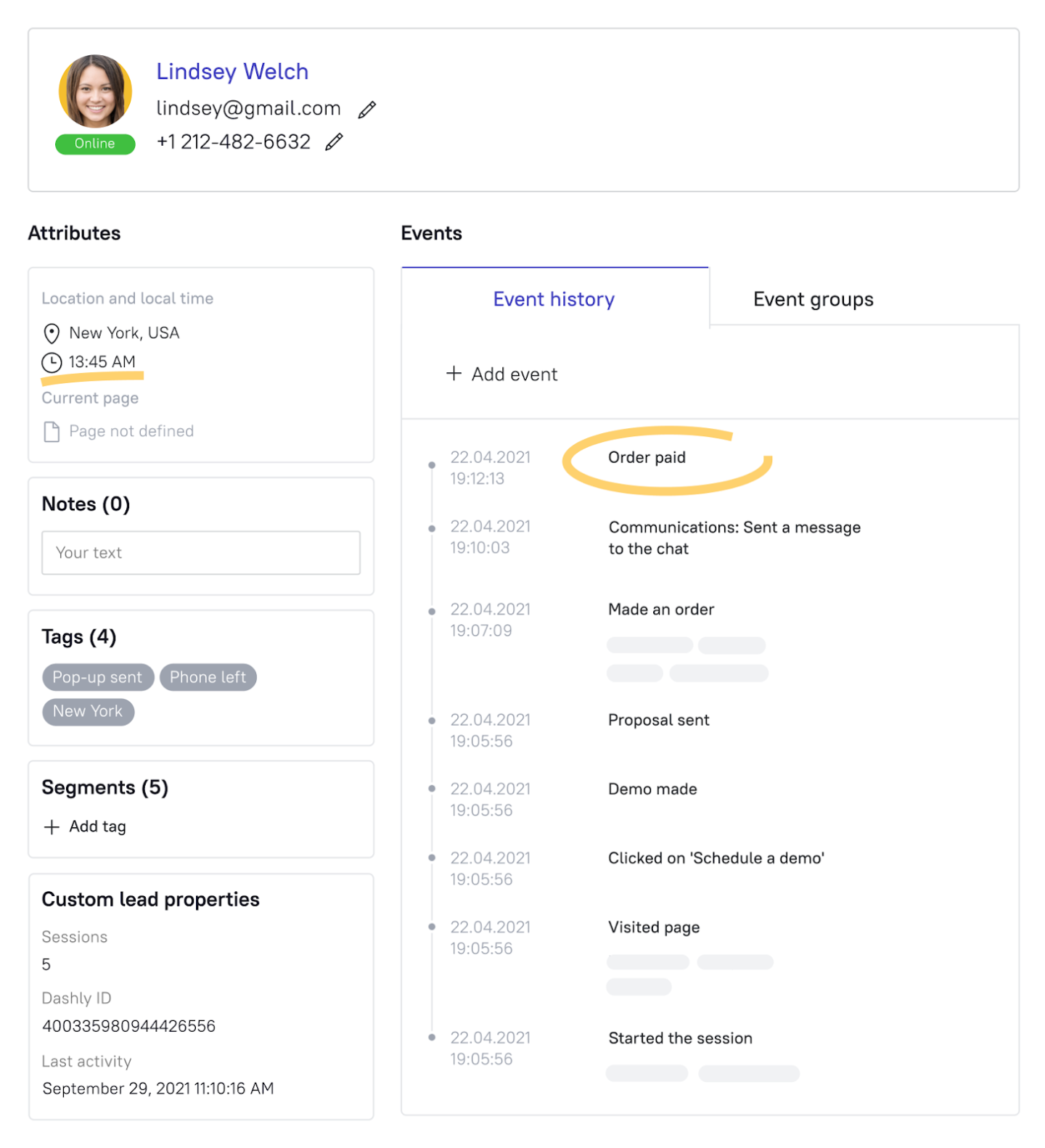
Here’s how Dashly personalizes the sales experience:
- Intelligent Lead Data Collection. Dashly gathers more than just basic contact details; it collects valuable data like lead preferences, behavior, and responses to qualification questions. This allows you to segment your leads effectively and tailor communication based on their specific needs and interests.
- Tailored Sales and Marketing Campaigns. By analyzing lead data, Dashly helps you craft personalized messages that speak directly to each lead’s interests. Whether it’s a personalized email or a specific offer, tailoring your communication increases the likelihood of engagement and conversion.
- Behavior Tracking for Enhanced Insights. Dashly tracks how leads interact with your website, emails, and other content. This data provides valuable insights into what resonates with your audience, enabling you to refine your approach and deliver more relevant content.
- Dynamic Content Adjustments. Based on lead behavior, Dashly dynamically alters content to ensure that it remains relevant. Whether it’s adjusting email subject lines or offering personalized recommendations on your website, Dashly ensures that your messaging stays engaging and impactf
By collecting detailed customer data, Dashly allows you to send personalized messages that speak directly to your leads, increasing the chances of moving them through the funnel with ease.
Boosting Demo Requests with Automated Email Sequences
For many businesses, demo requests are a pivotal moment in the sales funnel. Dashly helps increase demo requests through automated, behavior-driven email sequences. Here’s how:
- Automated Email Sequences. Dashly automates the delivery of email sequences that guide leads through the funnel. For example, if a lead downloads an ebook or visits a product page, Dashly triggers a series of follow — up emails to nurture that lead and move them closer to requesting a demo.
- Timely Follow — Ups. Dashly automates timely follow — ups with leads who have shown interest in a demo. These follow-up emails keep the conversation going without the need for manual tracking. This consistent communication helps prevent leads from slipping through the cracks.
- Personalized Demo Content. Tailoring demo-related emails to the specific interests and needs of your leads is key to increasing conversions. Dashly uses lead behavior data to personalize demo invitations, ensuring the content is relevant and resonates with each prospect.
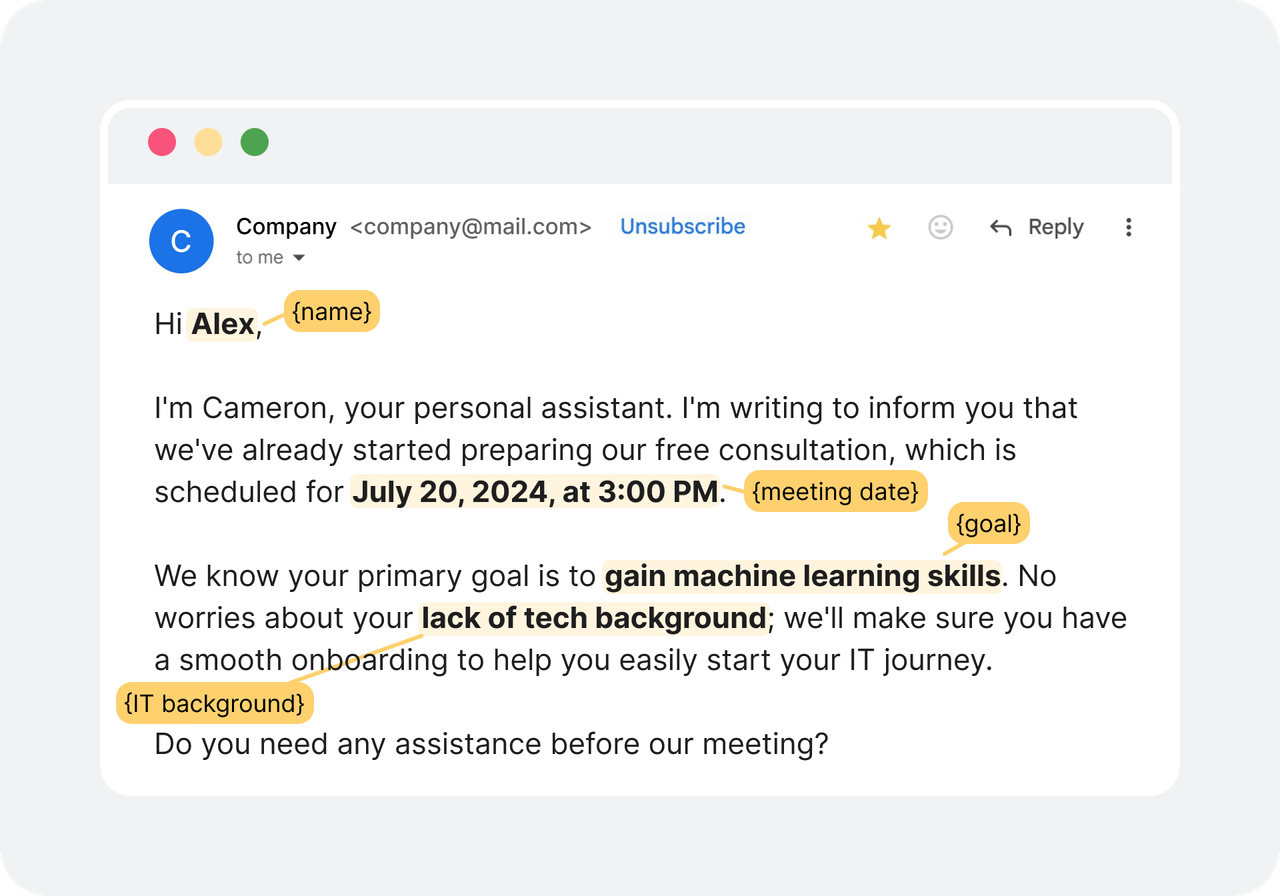
By automating and personalizing email sequences for demo requests, Dashly ensures that your leads are constantly nurtured and reminded of the value your product offers, boosting your chances of converting them into customers.
Automating the Lead Qualification Process
The lead qualification stage is one of the most time — consuming but critical aspects of the CRM sales funnel. Dashly helps automate and streamline this process, saving time and improving accuracy. Here’s how:
- Automated Lead Qualification. Dashly automates the qualification process by assessing leads based on responses to qualification questions and behaviors. Leads who engage with specific content, download resources, or show high interest are automatically tagged as high-priority, reducing the need for manual qualification.
- Customizable Qualification Criteria. With Dashly, you can set custom qualification rules to match your business needs. Whether you want to qualify leads based on industry, job title, or actions taken (such as downloading a white paper), Dashly’s flexibility ensures that you focus only on the most promising leads.
- Real — Time Insights for Actionable Data. Dashly tracks lead activity in real — time, giving your sales team immediate insights into lead status. This allows your team to act quickly when a lead is ready for a conversation and spend less time on leads that need further nurturing.
- Instant Lead Handoff for Fast Follow — Up. Once a lead is qualified, Dashly instantly hands it off to your sales team with all the necessary information, ensuring no time is wasted. This seamless transfer makes it easier for sales reps to engage with leads in a timely and informed manner.
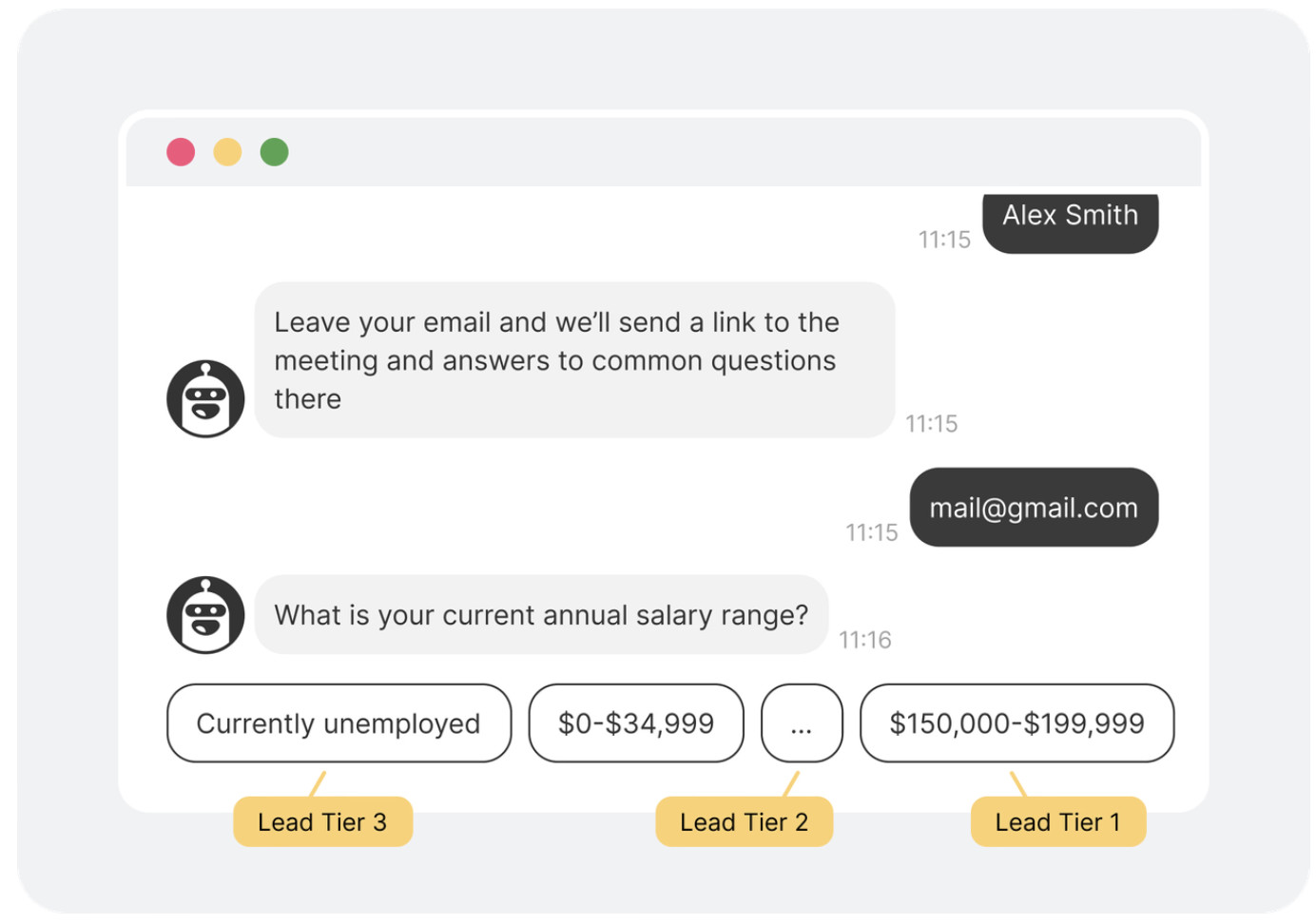
By automating the lead qualification process, Dashly helps you focus your energy on the leads that matter, while ensuring no prospect falls through the cracks.
Improving Lead Conversion with Dashly Automation
Dashly’s ability to automate key aspects of the CRM funnel ensures that no lead is neglected. By automating tasks like lead qualification, follow — ups, and demo requests, Dashly allows businesses to focus on closing deals rather than handling time-consuming administrative tasks.
- Efficient Lead Management. Dashly’s integration and automation tools enable efficient lead management. By automating manual processes, businesses can spend more time nurturing and converting high — priority leads while ensuring that no prospect falls through the cracks.
- Personalized Engagement at Scale. With Dashly, businesses can send personalized emails and messages at scale, creating the illusion of one — on — one communication even when dealing with large volumes of leads. This level of personalization fosters stronger relationships with prospects and improves the chances of conversion.
- Data-driven Decisions. Dashly’s analytics tools provide valuable data that helps businesses make informed decisions about their CRM strategy. By tracking lead behavior and sales funnel performance, Dashly enables businesses to continuously optimize their approach and improve results over time.
Ready to Optimize Your CRM Sales Funnel?
Dashly makes it easier than ever to optimize every stage of your CRM sales funnel. From seamless CRM integration and automated lead qualification to personalized email sequences and behavior — driven insights, Dashly’s tools help businesses improve lead conversion rates and increase sales efficiency.
If you’re ready to streamline your CRM processes and turn more leads into loyal customers, Dashly is here to help. Take advantage of its powerful automation and integration features to enhance your sales funnel and drive growth for your business.
Start using Dashly today and take the first step toward transforming your CRM sales funnel into a well — oiled machine!
Double your SaaS sales funnel metrics with Dashly AI
⭐ Growth the number of qualified leads with conversational quiz
⭐ Increase meetings scheduled with AI lead nurturing campaigns
FAQ
CRM funnel optimization is the process of improving how prospects move through your sales CRM system. It ensures every stage is efficient, reducing lead drop-offs and increasing deal conversions. For businesses, this means more valuable customers and better ROI from marketing efforts.
Use your CRM software to track insights at every stage. Look for high drop-offs, delayed responses, or low engagement. Automated solutions, like Dashly, can provide real-time analytics to pinpoint bottlenecks and guide teams on where to focus.
Automation saves time and reduces errors. It helps teams qualify prospects, send personalized emails, and follow up with potential customers at the right time. For example, an automated qualification quiz on your website can route leads to the correct CRM stage, making the entire process seamless.
Email is a direct, cost-effective way to nurture prospects and guide them through your sales CRM. Personalized, automated email campaigns keep leads engaged and push them toward the next stage. Pairing email with behavioral data from your CRM system increases effectiveness.
Absolutely! Educational institutions can use CRM funnels to manage student inquiries, applications, and enrollments. For example, an app for automated follow-ups ensures no applicant is left behind.
Optimizing your CRM funnel means everyone on the team knows their role at every stage. It aligns sales, marketing, and support teams with clear processes.
A robust CRM system is key. Look for features like lead qualification, automated email workflows, and detailed insights. Dashly’s software offers all these tools, helping you build better funnels and close more deals with less effort.


